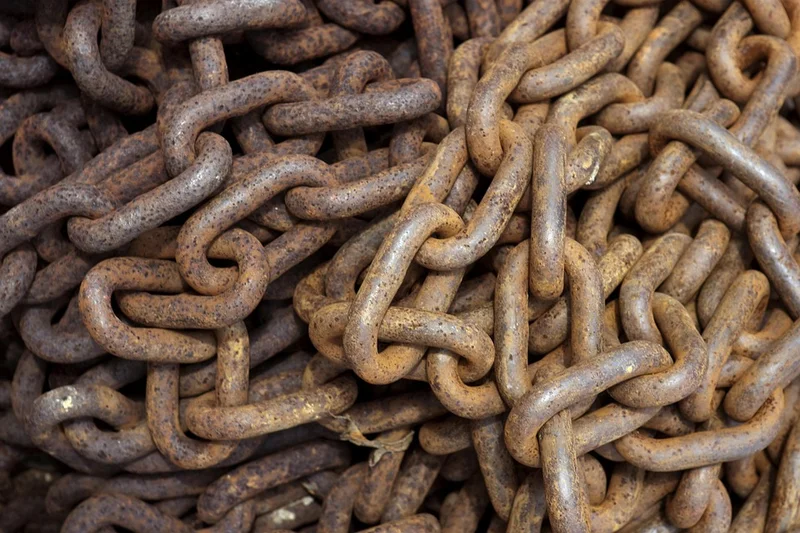The Anatomy of a Squeeze Play: Why Abuelo's Bankruptcy Was a Mathematical Certainty
The news that Abuelo's, the 36-year-old Tex-Mex chain, filed for Chapter 11 bankruptcy was met with the usual wave of online nostalgia. But for anyone tracking the numbers in the casual dining sector, this wasn't a shock. It was the predictable, almost clinical, final stage of a business model caught in a terminal squeeze. This isn't a story of a beloved brand falling on hard times; it's a case study in market obsolescence.
The filing itself, lodged quietly in the Northern District of Texas, lays out the grim arithmetic. At its peak, the company operated 40 locations. Today, that number has been slashed to 16, a development that led to headlines announcing a Beloved Mexican restaurant declares bankruptcy, closing 24 restaurants. The parent company, Food Concepts International, is also bankrupt, and their combined liabilities are listed between $10 million and $50 million. This is the endpoint of a long, slow decline.
In its public statements, the company frames this as a "strategic restructuring process to strengthen our long-term financial position." This is the kind of sanitized corporate language designed to calm investors and vendors. But the data tells a far more brutal story. This isn't a strategic pivot; it's a desperate attempt to stanch the bleeding. The numbers show a business that has been hemorrhaging for years. Customer traffic dropped about 6%—to be more exact, 5.9% in 2023—and that negative trend accelerated into 2024. One report cited a staggering 15% sales drop last year, compounded by a one-off hit of around $500,000 in lost revenue from heat-related closures.
So, when a company says it's "restructuring," what it really means is that its previous model has failed. The question isn't whether they can survive, but whether the market they once served even exists anymore.
Caught in the Middle and Crushed
The core problem for Abuelo's, and for chains like it (On the Border, which also filed for bankruptcy this year, is another key data point), is a classic strategic failure, prompting many to ask: Inside Abuelo's Bankruptcy: Are America's Mexican Restaurant Chains on the Brink of Collapse? They are trapped in the casual dining no-man's-land. They are neither fast and cheap enough to compete with the quick-service giants, nor are they specialized and authentic enough to compete with the burgeoning local taquería scene.
Think of the market as a barbell. On one end, you have the hyper-efficient, value-driven behemoths. Taco Bell has over 7,600 U.S. locations, and Chipotle, with its streamlined digital-first model, has expanded past 3,600. They have mastered scale, speed, and cost. They own the "value" proposition.

On the other end of the barbell, you have the explosion of independent, regional, and specialized Mexican restaurants. These smaller players thrive on a perception of authenticity, unique flavors, and a direct connection to the community. They own the "experience" proposition.
Abuelo's was stuck in the hollowed-out middle. For decades, its model worked: offer a pleasant, sit-down experience with generous portions of familiar Tex-Mex fare. It was a reliable choice for a family dinner. But that middle ground has evaporated. Post-pandemic consumers have bifurcated. They want extreme convenience and value, or they want a unique, memorable experience. "Reliable" and "familiar" are no longer compelling selling points. I've looked at hundreds of these filings over the years, and this pattern is unmistakable. When a market matures, the undifferentiated middle is always the first to go. It's a textbook case.
This isn't just about changing tastes; it's about a fundamental breakdown in the value equation. As food and labor costs soared, Abuelo's had to raise prices. Suddenly, a burrito combo that was once an affordable treat started creeping into the price territory of a more upscale casual dining meal. The consumer looks at the check and asks a simple question: why am I paying this much for something I can get faster and cheaper at Chipotle, or better and more interesting at the local spot down the street? When you can't provide a good answer, your traffic starts to fall.
The Illusion of a Growing Market
The irony is that, on paper, the Mexican restaurant market looks healthy. Projections show it reaching over $76 billion globally in 2025. But this top-line number is dangerously misleading. It masks the intense consolidation happening beneath the surface. That growth isn't being distributed evenly; it's being captured by the giants at the value end and the nimble innovators at the premium end.
The market is, in a word, oversaturated. Too many chains are offering nearly identical menus, décor (the faux-stucco courtyard look was novel in 1988), and price points. When differentiation disappears, brands are forced to compete on price and location alone—a battle a shrinking regional chain like Abuelo's can't possibly win against a giant like Taco Bell. The company's attempt to cut overhead and close underperforming stores was a logical defensive move, but it was like trying to patch a sinking ship with duct tape. It doesn't address the fundamental design flaw.
So, will Abuelo's survive this "restructuring"? It might, in some smaller, leaner form. But the brand as generations knew it is effectively gone. The bankruptcy filing isn't the cause of its demise; it's the official acknowledgment of it. It's the moment the math finally caught up to the marketing. The larger, more important question is, who's next? Which other mid-tier chains are looking at Abuelo's balance sheet and seeing a terrifying reflection of their own future?
A Casualty of the Mean
Ultimately, Abuelo's didn't collapse because of a single catastrophic event. It was bled dry by a thousand small cuts, a slow erosion of its value proposition until nothing was left but nostalgia. The brand became a victim of the statistical mean—it was too average in a market that now rewards the extremes. Its failure is a warning signal for any business occupying that precarious middle ground. In today's economy, being "good enough" is a death sentence. The numbers don't lie, and for Abuelo's, they simply stopped adding up.










